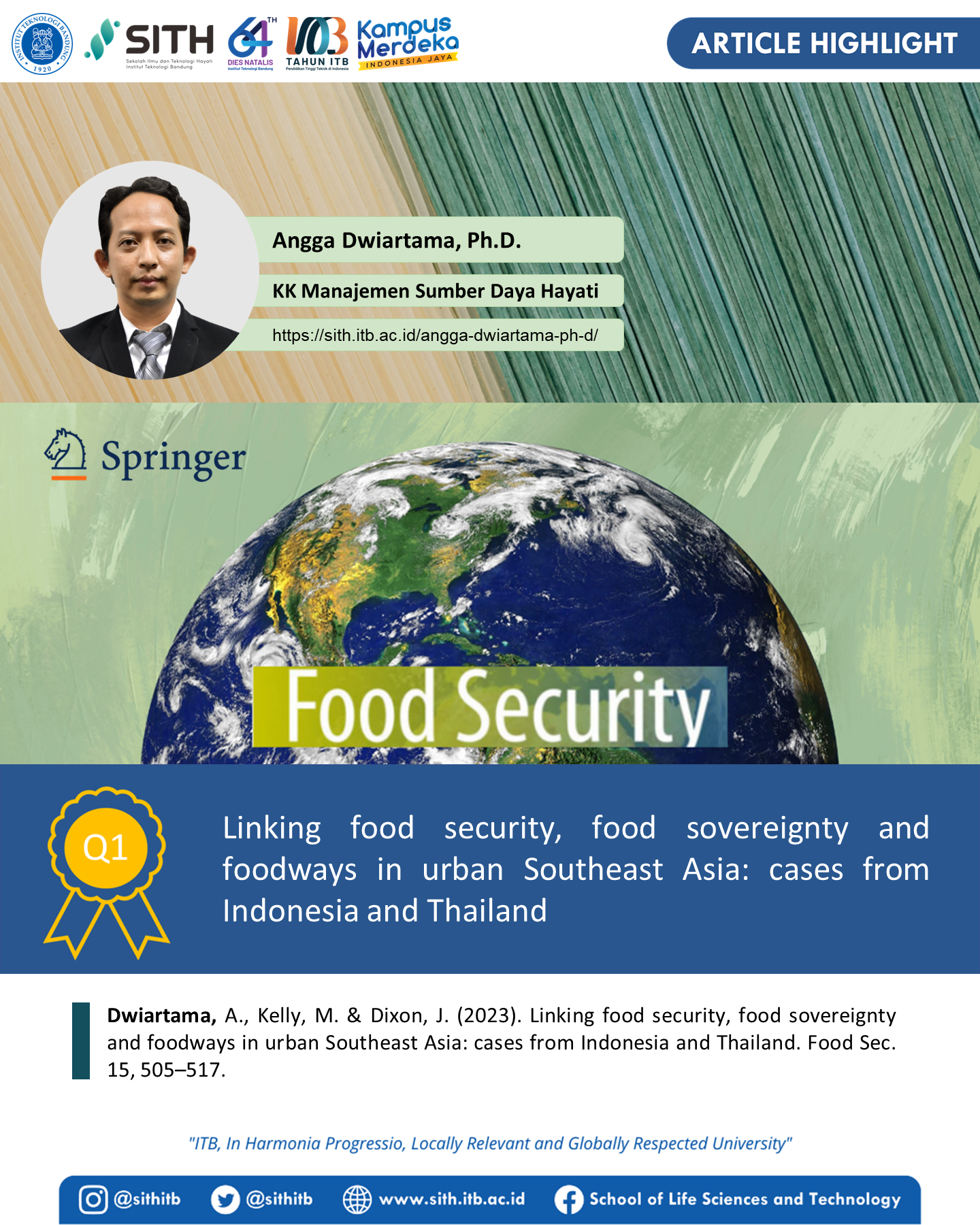Linking Food Security, Food Sovereignty and Foodways in Urban Southeast Asia : Cases from Indonesia and Thailand

This article explores linkages between food security, food sovereignty and foodways within the context of poor urban populations in Southeast Asia. Angga Dwiartama, Ph.D. and his colleagues situate the study within the vast array of literature concerning the (in)ability of the urban poor to access healthy and nutritious food due to factors of distance, price, and preferences that are created by the socio-economic structure in which populations live. We use two sub-studies from Indonesia and a comparative analysis with Thailand, to argue that the urban poor have their own ways of achieving food security and for claiming food sovereignty, which are not necessarily determined only by prices and distance, nor by their (necessarily limited) access to agricultural land. We re-interpret food sovereignty in the urban context by shifting our attention from food production to food access through informal markets, urban foodways, and the role of social capital. This study shows that focusing on the capacities of poor urban communities and on the role of local government (in facilitating access to space–physical, regulatory, and social), better understanding of foodways in Southeast Asia can be achieved. This understanding will improve the functioning of food systems and food security.
Article Citation:
Dwiartama, A., Kelly, M. & Dixon, J. (2023). Linking food security, food sovereignty and foodways in urban Southeast Asia: cases from Indonesia and Thailand. Food Sec. 15, 505–517. https://doi.org/10.1007/s12571-022-01340-6
Image:
Angga Dwiartama, Ph.D Profile Picture
(Source: https://sith.itb.ac.id/angga-dwiartama-ph-d/)
https://www.canva.com/
Profile of Angga Dwiartama, Ph.D.:
(https://sith.itb.ac.id/angga-dwiartama-ph-d/)


